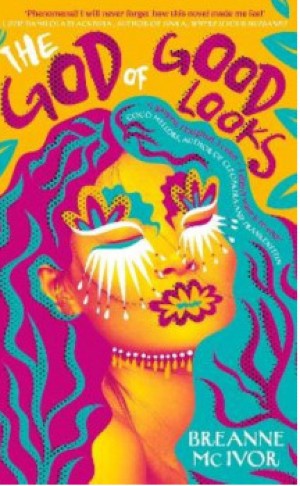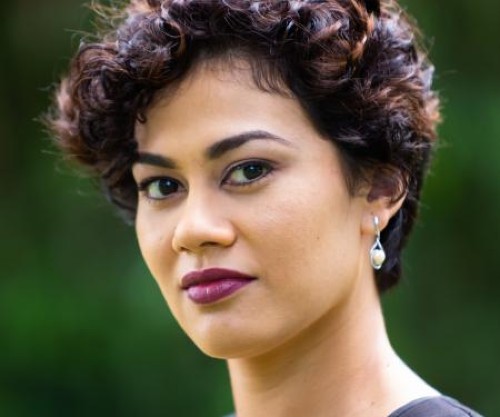In 'The God of Good Looks', Breanne Mc Ivor Analyzes Trinidadian Culture Through The Beauty Industry
The opening of author Breanne Mc Ivor’s debut novel, The God of Good Looks, begins with a question:
 “B: Why have you succumbed to this self-interview?
“B: Why have you succumbed to this self-interview?
B: For the money.”
These lines, which are inspired by the personal journals of Saint Lucian poet and playwright Derek Walcott, touch on one of the main motivations of the book: money. Not having enough of it, the barriers strategically set in place for certain classes of people in society to not obtain it, and the extreme lengths that people go to in order to obtain it.
In The God of Good Looks, we meet Bianca Bridge, a 24 year old Trinidadian scholar that dreams of being a writer and penning the next great novel based on her late mother’s life story. Her dreams are derailed when she gets caught up in a scandalous affair with a prominent, and married, government official that eventually goes public. After getting unceremoniously fired from her publishing job at a popular literary magazine in Trinidad and becoming a social pariah of The Scarlet Letter proportions, she relies on her beauty to make ends meet by modeling for whoever will hire her, including one especially unsavory mas camp owner that was hoping to see her out of his Carnival costumes after modeling them.
So when local makeup guru and magazine owner Obadiah Cortland (rudely) offers her a job, she reluctantly accepts. Her new boss has built a reputation in Trinidad’s beauty scene as the “God of Good Looks”, a makeup legend that is the best at what he does, but is also known to be harsh and ironhanded with those he works with. Brought in to be Obadiah’s assistant as well revamp his monthly magazine, Bianca experiences his taciturn attitude firsthand, but through sheer determination on her part, she breaks through the facade that the rigid man has been creating for years to hide his low class upbringing and current financial situation which is in dire straits. Just as Bianca starts to find her confidence and literary voice again, her ex reimerges to threaten both her and Obadiah’s futures, causing them to come together and find a way to save the things they care about while possibly bringing out the best in each other. Trinidadian author Breanne Mc Ivor
Trinidadian author Breanne Mc Ivor
Mc Ivor bravely taps into her own personal experiences to create Bianca Bridge and, in her own words, says: “...once I started writing, Bianca's voice poured onto the page, grounded in my own experiences. I've modeled for Carnival; I've been told that I should never, ever weigh above 125 pounds; I'm a Trinidadian woman whose great-grandfather also arrived in the country on a boat from China. Bianca is not me, but she lives in a world that I know well.” McIvor paints a charming and tragically accurate landscape of the social challenges plaguing modern day Trinidad which include gender inequality, sexism, poverty, and rampant crime, as well as the way the island comes alive with the revelry of Carnival and the wonderfully simple pleasures in everyday life like eating doubles on the pavement filled with spiced channa, cucumber and pepper and washed down with coconut water.
This inspiring narrative that spans the history, culture, and current societal ills of Trinidad and Tobago through the use of the beauty and literary industries is a must read with a courageous and ambitious heroine that you can’t help but root for.


